Infrastructure
Borders Without Doctors: Along With Constant Ceasefire Violations, Jammu Residents Battle Poor Health Facilities
Arjun Sharma
May 31, 2018, 10:42 PM | Updated 10:42 PM IST
Save & read from anywhere!
Bookmark stories for easy access on any device or the Swarajya app.
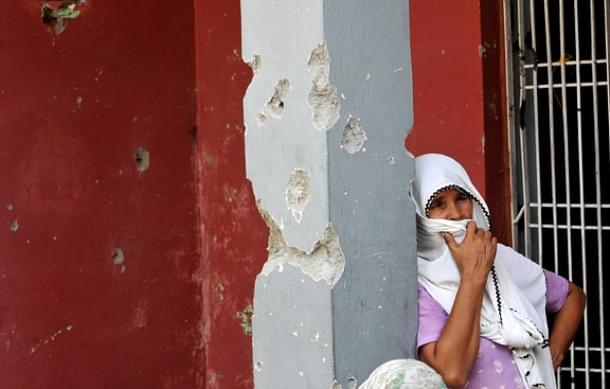
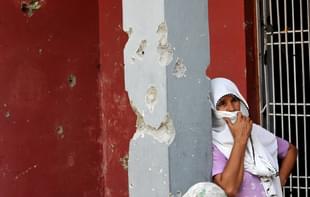
Tilak Raj, 72, resident of a border town in Jammu, lost his leg after a mortar shell from across the border exploded in his veranda in October 2014. But his leg could have been saved if the local ambulance hadn’t run out of fuel.
Raj lives in Arnia town, barely kilometres away from the International Border. After the shelling, there were attempts to provide him treatment immediately. But absence of fuel in the ambulance of a local primary health centre caused a delay and he could not be taken to the only major facility in the vicinity, Government Medical College and Hospital (GMCH) in Jammu, on time.
Today, Raj is unable to work on his fields.
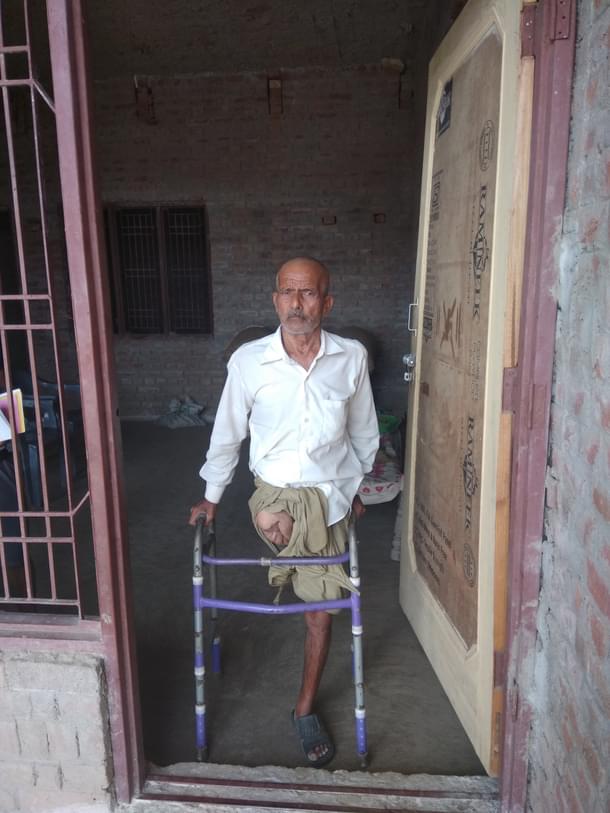
Splinters pierced Raj’s right leg at around 5.30am on 6 October when he was sleeping in a room adjoining the veranda of his house. He was first taken by his wife and neighbours to the primary health centre in the town, which referred him to the GMCH in Bakshi Nagar, Jammu, nearly 32km and an hour-long drive from his home.
“The staff at the heath centre could only give me first-aid and washed the blood on my leg. They referred me to the big hospital. We could have reached on time, but there was no fuel in the ambulance at the health centre. My family arranged the money for fuel and I was taken to the emergency ward. Doctors said that the infection in my leg had spread by the time I was taken to the hospital, and my leg was amputated to save me,” Raj said.
Raj’s claim is acknowledged by the health officials at the primary health centre.
Dr Mushtaq Bhatt, medical officer at Arnia Primary Health Centre, told Swarajya that the problem of ambulances running out of fuel is real. “We have asked the state government for funds so that the problem doesn’t arise at the time of emergency,” said Bhatt. He also said that there was no provision for emergency treatment at the health centre, which has five beds. Bhatt said that the hospital needs to be upgraded as it is located close to the zero line.
Arnia sector remains most affected by ceasefire violations that have been frequent since 2014.
Despite the fact that peace at the borders, including at the Line of Control (LOC) in Jammu region, remains elusive, the state government has made little arrangement in these areas.
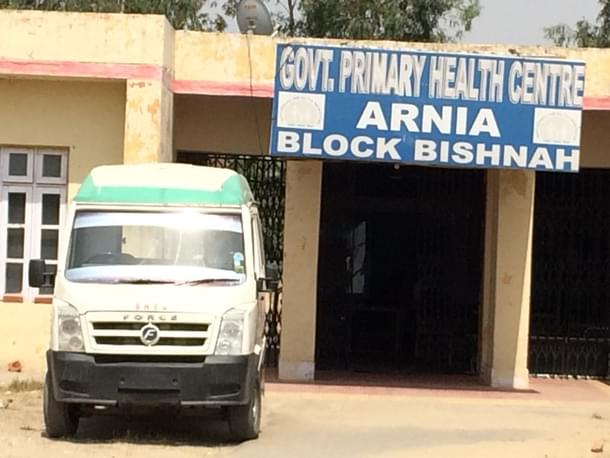
Locals from Arnia, R S Pura, Akhnoor, Samba, and Kathua along the International Border have always raised the demand for a bulletproof ambulance in these areas so that the injured could be evacuated easily at the time of emergency. The health infrastructure at the primary health centres in these areas is so poor that they have become only referral agencies to the GMCH in Jammu city.
As many as 12 people were killed in the recent ceasefire violation by Pakistan that continued for nine days along the International Border in Jammu and LOC in Rajouri and Poonch districts. Victims included an eight-month-old infant in Keri Battal area of Akhnoor sector. More than 100 people were injured due to bullets and splinters of mortar shells. India shares a 185km International Border and nearly 734km of LOC with Pakistan in Jammu and Kashmir.
More than 80,000 people had to be evacuated from the border areas by the district administration after Pakistan started shelling the villages. While most of the village residents went to their relatives for help, many were put up in makeshift camps.
Sudhesh Devi, 68, another resident of Arnia, shared her tale of how a mortar shell exploded near the gate of her house while she was busy in the kitchen on 21 May. She sustained injuries on her arm. “Splinter of the mortar pierced into my arm. It entered so deep that I was not able to remove it. My son rushed me to the health centre. The doctors said we should immediately go to the government hospital in Jammu as there was no surgeon available who could remove the splinter,” said Devi.
She said that it took more than one and a half hour for her son to take her to the hospital in Jammu as there were traffic jams.
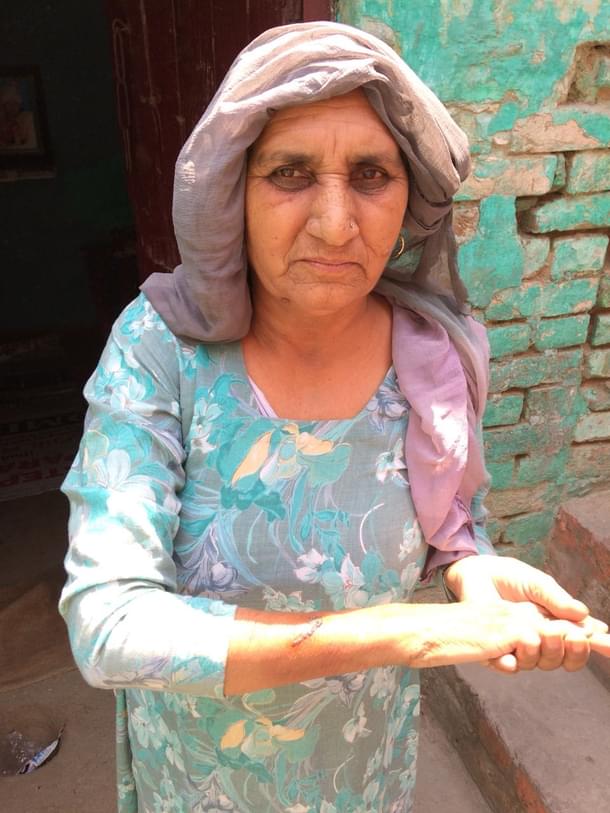
The dire situation of health services can be further gauged from the fact that a bunker has been built even at the primary health centre at Arnia so that the staff can take shelter in it when Pakistan starts bombing the area.
It was after several complaints by the residents of the border areas of Jammu that Health Minister Devender Kumar Maniyal visited the makeshift camps and hospitals where the injured were admitted. He was appraised by the injured of the difficulties they had to face after ceasefire violations. The minister then ordered that a critical care ambulance that was not available till 23 May be deployed at the border.
“People had to suffer during the initial phase of firing in the sector, but I ordered the senior health officials to deploy ambulances in all sensitive border areas so that our civilians get medical treatment on time,” said the minister.
Despite the fact that a ceasefire agreement was signed between India and Pakistan in 2003, the latter has never respected it and shelling on Indian villages is a routine affair.
From 2015 to 2018, over 300 people have been killed along the International Border and LOC due to ceasefire violations by Pakistan, government data reveals.
The condition of the health facilities in mountainous villages along the LOC at Nowshera, Sunderbani, and Manjakot in Rajouri district and Krishna Ghati, Mendhar, and Balakot in Poonch district are even worse than that on the International Border. While the residents there could reach the government hospital in Jammu city within an hour, it takes more than four hours for the residents of Rajouri and Poonch to reach Jammu.
Health facilities in the state are such that there is no eye specialist in Rajouri district, where cases of ceasefire violations are routine. On 14 May last year, Pakistan resorted to a ceasefire violation in Rajouri and Poonch that affected at least 10,000 people.
The district hospital of Rajouri also caters to patients from adjoining Poonch district. Dr Mehmood Hussain Bajar, medical superintendent of Rajouri district hospital, said that the institution provides secondary care to patients injured due to ceasefire violations. “We refer those patients to Jammu who are more serious and need tertiary care,” Bajar said. He said many patients who have eye injuries are also referred to Jammu.
Philanthropist Rohit Choudhary, based in Bishnah tehsil along the border and who provides relief in the form of food and water to those displaced due to firing, said that the injured were carried on tractor trolleys during the initial days of firing as there was only one ambulance available in border areas. He said that the demand for a critical care ambulance and upgrading of local primary health centres has been made to the government but to no avail.
“A trauma centre along with a blood bank is an urgent need for the area as most of the deaths take place due to blood loss,” Choudhary said.




